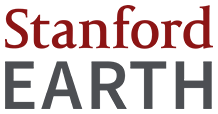The Stanford School of Earth, Energy & Environmental Sciences is now part of the Stanford Doerr School of Sustainability.
This page is currently being maintained for archival purposes only. For the latest information, please visit us here.
Michael Osborne wins AAAS Mass Media Fellowship
Environmental science grad student, KZSU DJ and podcast producer will spend summer at KQED in San Francisco
May 6, 2013
Michael Osborne, a PhD candidate in Environmental Earth System Science, was named one of 14 Mass Media Science & Engineering Fellows by the American Association for the Advancement of Science for 2013. Osborne will spend 10 weeks this summer as an AAAS fellow working on the science desk of KQED, the San Francisco based public broadcasting station. The American Geophysical Union is funding the fellowship.
In addition to studying climate change in the tropical Pacific with Prof. Rob Dunbar, Osborne received a DJ certification at KZSU and subsequently hosted the KZSU Monday Lunch Hour, a variety show featuring Stanford faculty and staff sharing stories about their lives both on and off campus.
"A great aspect of spending time on a university campus is the incredible conversations you hear between students and professors,” Osborne said. “My interest in communication comes from a desire to capture the spirit of those conversations and convey the joy of learning and intellectual pursuits. It seemed to me that someone should be recording more of these moments."
Osborne developed and taught project-based science communication courses at Stanford – some in partnership with Miles Traer, a PhD candidate in Geological and Environmental Sciences.
Inspired by their pedagogical collaborations that focused on 21st century environmental issues, Osborne and Traer created the Generation Anthropocene podcast, a volunteer-based audio show featuring global thought leaders. Anthropocene is an informal term that marks the evidence and extent of human activities that have had a significant global impact on the Earth’s ecosystems.
"There is ample physical evidence that we are living in a new geologic age – the Anthropocene -- based on the global footprint of humankind,” Osborne said. “Through the podcasts, we want to capture stories about the changing environmental and cultural landscapes from diverse perspectives, ranging from geologists, ecologists and climate scientists to historians and philosophers.”
Tom Hayden, a lecturer who teaches science and environmental journalism and communication, is the academic advisor for Generation Anthropocene. The podcast is supported by the School of Earth Sciences.
Osborne holds degrees from the University of Montana in criminology and from the University of Texas in geology. He and Traer are giving a joint presentation on the Anthropocene at Stanford's TedX, on May 11.



